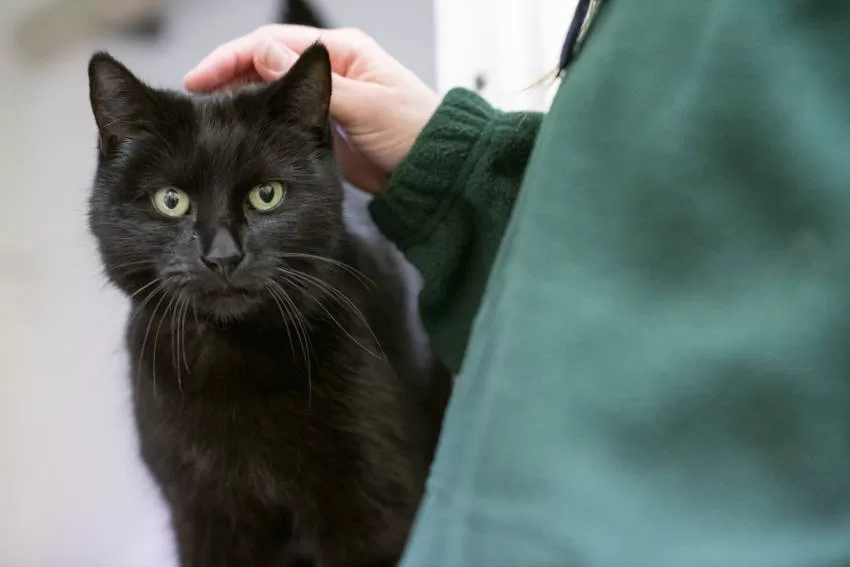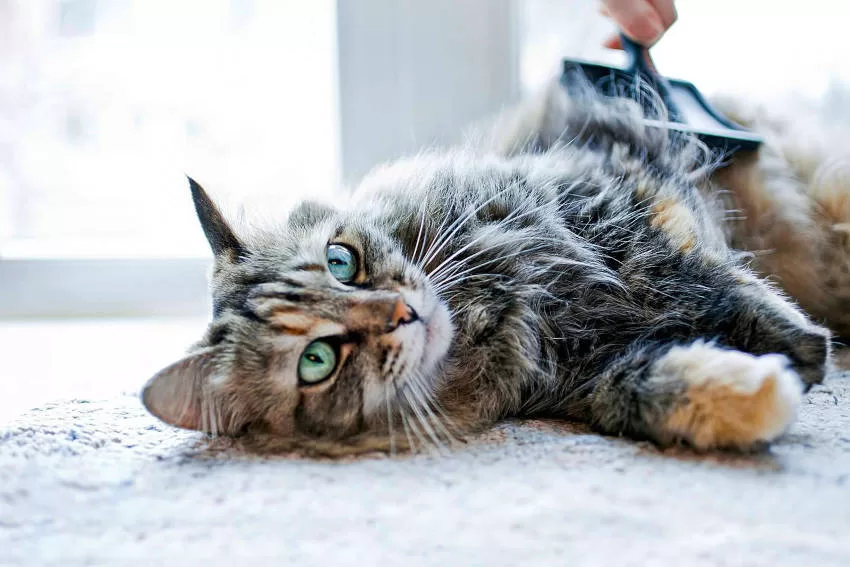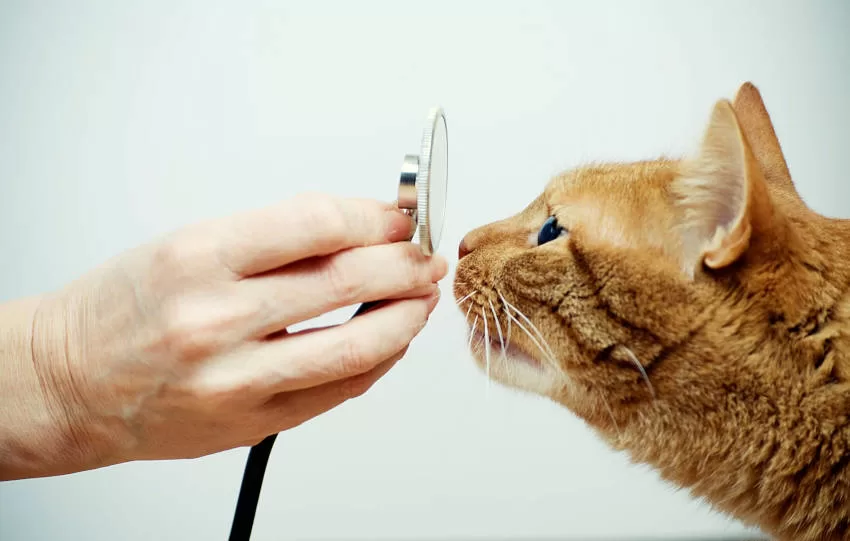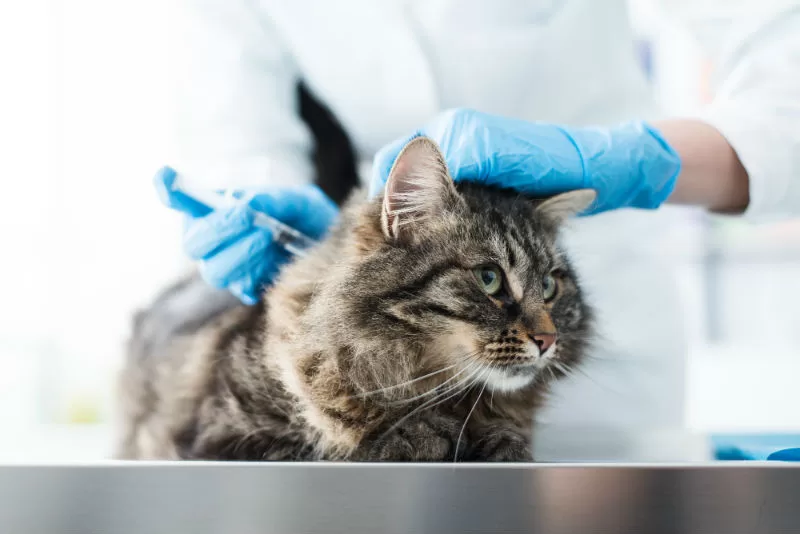Introduction to cat health
Did you know that taking care of your cat’s health is essential to ensure a long and healthy life? Knowing the main aspects of feline health is essential to prevent diseases and provide your pet with well-being. From proper nutrition to hygiene care, the cat’s health encompasses several important aspects.
You need to be aware of symptoms that may indicate health problems, such as persistent cough or intestinal changes. After all, just like us humans, animals can also face health issues. Knowing how to identify the reason behind these symptoms can mean early diagnosis and proper treatment.
For example, did you know that diabetes in cats is a serious condition? It is important to understand what it means to have a diabetic cat and how to best care for them.
Here is some essential information about your cat’s health. Let’s explore them together!
Importance of disease prevention in cats
Investing in disease prevention is essential to ensure the health and well-being of our dear cats. In addition to avoiding animal suffering, prevention also brings financial benefits, since treatments and medications can be quite expensive. Therefore, it is important that tutors are aware of the importance of adopting preventive measures to keep their cats healthy.
One of the main ways to prevent disease in cats is through regular vaccinations. Vaccines are essential to protect cats against several serious diseases, such as feline viral rhinotracheitis, calicivirus and panleukopenia. By following the vaccination schedule recommended by your veterinarian, you will ensure that your cat is properly immunized, thus preventing future complications.
Another fundamental measure in the prevention of diseases in cats is the control of parasites. Fleas, ticks and intestinal worms are some of the most common parasites that can affect felines. These parasites not only cause discomfort to the animal, but can also transmit serious diseases. Therefore, it is important to use appropriate antiparasitic products and perform periodic examinations to verify that your cat is free of these unwanted invaders.

In addition, periodic visits to the veterinarian are essential to monitor your cat’s health and detect early any problems that may arise. The veterinarian is the best professional to perform routine tests, such as check-ups and blood tests, which can identify diseases in the early stages. In this way, it is possible to start treatment early and increase the chances of curing or controlling the disease.
In short:
Preventing disease in cats is not just about medical care. It is important to offer a balanced diet that is adequate to the needs of your feline, thus guaranteeing all the essential nutrients to strengthen its immune system. Also, provide a clean and safe environment for your cat, avoiding exposure to toxic substances or stressful situations that could compromise its health.
Investing in the prevention of diseases in cats directly contributes to the quality of life of the animals. Healthy cats are more active, less likely to develop chronic problems, and live longer. In addition, by adopting preventive measures, you will be strengthening the bond with your cat, showing care and love for its well-being.
Care necessary to maintain the health of the cat
Balanced food, fresh water always available and regular exercise are essential to maintain your cat’s health. In addition, specific care with hygiene and the environment in which he lives are also fundamental.
Proper nutrition is crucial to ensure your cat’s health. Be sure to offer a balanced diet that meets his nutritional needs. Consult a veterinarian for guidance on the best foods and ideal amounts for your feline. Avoid giving human foods, as many can be toxic or harmful to the health of cats.
Fresh water should always be available for your cat. Keep containers clean and stocked with potable water. Cats are more likely to develop kidney problems, so it’s important to encourage regular water consumption.
Just like us, cats need regular exercise to maintain good physical condition. Interactive play with toys designed for them help stimulate their agility and keep them active. Also, allow them to have access to the outside or create an enriched environment indoors with high shelves and suitable scratching posts.

Regular brushing of the coat is essential to avoid problems such as hairballs in the digestive tract and dermatitis caused by the accumulation of dirt on the skin. Brush your cat at least twice a week, using specific brushes for this purpose. In addition, regularly check for the presence of fleas and ticks, carrying out preventive treatments indicated by the veterinarian.
Cleaning the litter boxes is another important precaution to keep your cat healthy. Remove the feces daily and completely change the litter at least once a week. Cats are extremely hygienic animals and can develop urinary problems if they don’t have a clean litter box.
In short:
Finally, provide a safe environment for your cat. Avoid toxic chemicals within his reach, such as poisonous plants or harsh cleaning products. Keep electrical cords protected and small objects out of reach of cats, as they have a tendency to swallow foreign objects.
By following these basic precautions, you will be providing a healthy and happy life for your cat. Always remember to consult a veterinarian for specific guidance on your feline’s individual needs.
Keywords: care, conditions, maintain
Childbirth of a cat: preparation and care
The delivery of a cat is a crucial moment that requires advance preparation and special care. Identifying the early signs and providing a safe place for the puppies to be born are essential steps in this process.
During the period before giving birth, the cat may show some indicative signs, such as restlessness, searching for a quiet place and excessive licking in the belly area. It is important to be aware of these behaviors to ensure that the mother is comfortable and safe when it comes time to give birth.
Preparing a suitable place for childbirth is essential. Choose a quiet area of the house where the cat feels comfortable. You can create a special box with soft blankets inside, providing a warm environment for the puppies to be born. Make sure this space is protected from drafts and external noise, as this will help keep the mother calm throughout the process.

During the birth itself, it is essential to support the cat. Stay calm by your side to convey security and tranquility. Avoid sudden movements or excessive noises that could startle her. Watch for signs of complications, such as labor difficulties or abnormal amounts of blood.
After the puppies are born, it is important to encourage breastfeeding to ensure that they receive the necessary nutrients in the first days of life. Make sure all the pups are eating properly and make sure the mother is taking care of them properly.
In short:
Also, create a peaceful environment for the cat and her kittens. Avoid excessive movement around the whelping box and keep other pets away for the first few days. This will help reduce the mother’s stress and provide an environment conducive to the healthy development of the pups.
In short, giving birth to a cat requires advance preparation and care throughout the process. Identifying early signs, providing a safe place for the kittens to be born, supporting the cat during labor and ensuring postpartum care are essential steps to ensure the health of the mother and kittens. By following these guidelines, you will be contributing to a positive and safe experience for everyone involved.
Always remember to seek veterinary advice in case of doubts or complications during your cat’s delivery. Professional opinion is essential to ensure that everything goes as smoothly as possible.
Skin and hair diseases in cats
Skin and hair disorders in cats can be caused by allergies, parasites or bacterial/fungal infections. These dermatological issues are common in cats and can cause significant discomfort. It is important to be aware of the signs that indicate the presence of these diseases so that an early diagnosis can be made and the appropriate treatment initiated.
One of the main symptoms of skin diseases in cats is excessive itching. If you notice that your cat is scratching himself a lot, it is possible that he is suffering from a dermatological problem. In addition, hair loss can also be a warning sign. If your cat is showing patches of fur or hairless areas, it is important to investigate the cause of this problem.
Skin sores can also indicate dermatological problems in cats. If you notice any damage to your cat’s skin, especially if it’s accompanied by redness or swelling, it’s essential to see a veterinarian for a proper evaluation.
There are different types of skin and hair diseases in cats, each with its own specific characteristics. Allergies are one of the main causes of these feline dermatological problems. Cats can develop allergies to food, chemicals in the environment, or even flea bites. Allergic reactions can lead to severe itching and skin irritation.

Parasites are also responsible for some skin disorders in cats. Fleas, ticks and mites can irritate your feline’s skin, leading to itchiness and inflammation. It is important to keep the cat protected against these parasites with the use of suitable products.
In short:
Bacterial and fungal infections can also affect the health of cats’ skin. Bacterial dermatitis, for example, is a condition that occurs when bacteria invade injured or damaged skin, causing inflammation and itching. Fungal infections, such as dermatophytosis (also known as “mycosis”), can lead to hair loss and skin lesions.
To correctly diagnose skin diseases in cats, it is essential to seek veterinary help. The professional will evaluate the symptoms presented by the animal, perform clinical and laboratory tests to identify the cause of the problem.
The treatment of skin diseases in cats varies according to each specific case. It may include the use of topical or oral medications to ease symptoms and fight any existing infections.
Worms in kittens: early deworming
Early deworming is essential to prevent worms in kittens, as they can compromise the health of the animal. Intestinal worms are common at this stage and can be transmitted by the mother during pregnancy or through ingestion of contaminated feces.
When adopting a kitten, it is important to be aware of the risks of parasite infestation. Worms can cause a number of health problems such as vomiting, diarrhea, weight loss and anemia. Also, puppies are more vulnerable to these parasites because their immune system is still developing.
To ensure your puppy’s health, always consult a veterinarian for guidance on the best deworming method. There are different options available in the market such as oral or topical medications. The veterinarian will be able to assess the health status of the puppy and recommend the most appropriate treatment.

Deworming should be started in the kitten’s first months of life. Generally, it is recommended to start the process around three weeks of age and repeat it every two or three weeks until they are three months old. After this initial period, the frequency may decrease to once a month for up to six months.
In addition to internal deworming, it is also important to take care of external prevention against fleas and ticks. These parasites can also affect the health of puppies and cause discomfort. Talk to your vet about the best way to protect your kitty from these ectoparasites.
In short:
In addition to deworming, there are other measures that can be taken to prevent worms in kittens. Keeping the environment hygienic is essential, as parasite eggs can be present in feces and soil. Regularly clean the cat’s litter box and prevent it from having contact with feces from other animals.
Another important measure is to prevent the puppy from having access to raw or undercooked food, as they may contain worm larvae. Be sure to offer your kitten an adequate diet, with balanced and safe food.
In summary, early deworming is essential to prevent worms in kittens. Consult a veterinarian for advice on the best method and frequency of treatment. Also, maintain the hygiene of the environment and provide adequate food for your puppy. That way, you’ll be ensuring a good start in your kitten’s life and contributing to its health and well-being.
Allergies in cats and preventive care
Cats can also develop allergies to food, chemicals or substances in the environment. These allergies can cause discomfort and affect the health of cats. It is important to be aware of the symptoms in order to identify these allergic reactions early and adopt adequate preventive measures.
The most common symptoms of allergies in cats include intense itching, frequent sneezing and breathing problems. In addition, it is possible to observe redness in the skin, irritation in the eyes and even vomiting or diarrhea in more severe cases. When a cat shows these signs, it is essential to seek veterinary advice to make the correct diagnosis.
Avoiding contact with allergenic substances is one of the main preventive measures for allergic cats. Identifying the causes of allergies can be challenging, as each animal can have different sensitivities. However, some causes are more common in these cases:
- Food allergy: certain ingredients present in the cat’s diet can trigger allergic reactions. Proteins of animal origin such as chicken, fish or beef are some of the possible causes.
- Flea allergy: the saliva of these parasites can irritate the cat’s skin.
- Pollen Allergy: Just like humans, cats can also be sensitive to plant pollen.
- Allergy to chemicals: some cleaning products, perfumes or even sanitary sand itself can trigger allergies in cats.
Allergy prevention:
To prevent and control allergies in cats, it is important to adopt some measures:
- Provide an adequate diet: opting for hypoallergenic or limited-ingredient pet food can help prevent food allergic reactions.
- Keep the environment hygienic: use mild cleaning products and avoid the accumulation of dust and mites in the environment where the cat lives.
- Avoid contact with known allergenic substances: if you identify that a certain product or substance causes reactions in your cat, avoid using it or leave it out of the animal’s reach.
- Control fleas and ticks: make regular use of antiparasitic products to avoid infestations of these parasites.
In addition, it is essential to follow the veterinarian’s guidelines to treat allergies already diagnosed. In some cases, it may be necessary to administer specific medications to control symptoms and improve the feline’s quality of life.
Conclusion: Promoting your cat’s overall health
Promoting your cat’s overall health is essential to ensuring they live a long and happy life. By taking preventive measures, taking proper care of your cat and being aware of signs of possible illness, you can ensure your pet feline’s well-being.
Prevention of disease in cats is of utmost importance. Keeping vaccines up to date, performing regular checkups with a trusted veterinarian and providing a balanced diet are some of the measures that can help prevent future health problems. In addition, it is essential to keep the environment clean and free of parasites.
To maintain your cat’s health, it is necessary to provide proper care. This includes providing a balanced diet, with specific food for cats, in addition to fresh water always available. It is also important to encourage physical exercise through play and provide safe spaces for him to explore.
During the delivery of a cat, it is essential to be prepared and take the necessary precautions to ensure the safety of both the mother and the kittens. Providing a quiet and comfortable place for the birth, in addition to following the whole process closely, can help to avoid complications.
Skin and hair disorders are common in cats and can cause the animal discomfort. Pay attention to any changes in your cat’s skin or coat and consult a veterinarian if necessary. Some preventive measures include regular brushing, proper bathing, and flea and tick control.
Early deworming is essential to ensure the health of kittens. Intestinal worms can cause serious problems in these young animals. Follow the veterinarian’s guidelines regarding deworming and maintain a clean environment to avoid reinfestations.
In short:
Just like humans, cats can also suffer from allergies. Keep an eye out for symptoms like excessive itchiness, sneezing and breathing problems. Avoiding contact with known allergenic substances, keeping the environment clean and offering adequate food are some measures that can help prevent allergies in cats.
In summary, promoting your cat’s overall health involves preventive measures, daily care and attention to signs of possible illness. Always remember to seek veterinary advice when necessary and provide your feline with a safe and loving environment.
FAQs
How can I prevent illness in my cat?
To prevent illness in your cat, it is important to keep vaccinations up to date, have regular checkups with a veterinarian, provide a balanced diet and keep the environment clean and free of parasites.
What is the importance of early deworming in kittens?
Early deworming is essential to ensure the health of kittens, as intestinal worms can cause serious problems in these young animals. Follow the veterinarian’s guidelines regarding deworming and maintain a clean environment to avoid reinfestations.
How can I take care of my cat’s skin and hair?
To take care of your cat’s skin and coat, it’s important to perform regular brushing, give adequate baths when necessary, and control fleas and ticks. If you notice any changes in the skin or hair, consult a veterinarian.
External References:

